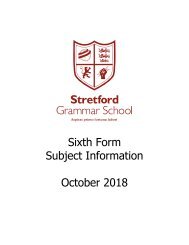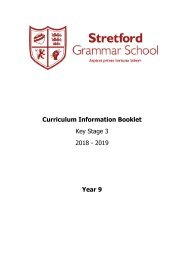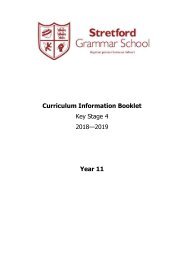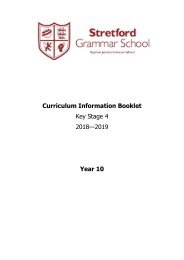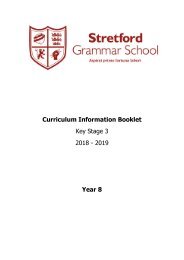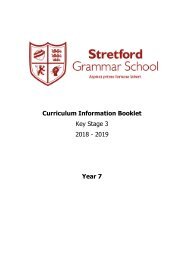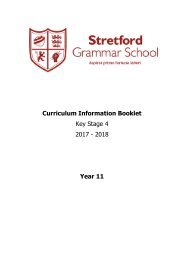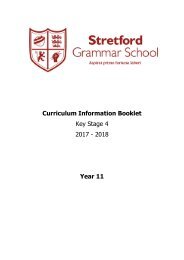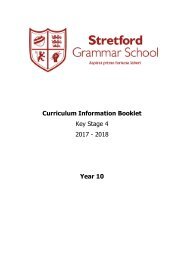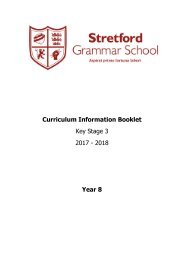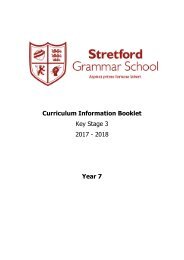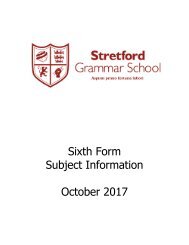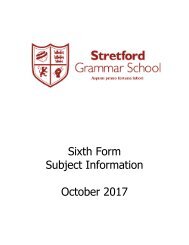Year 9 Curriculum Information Booklet 2017-2018
You also want an ePaper? Increase the reach of your titles
YUMPU automatically turns print PDFs into web optimized ePapers that Google loves.
Biology<br />
We start the KS4 course at the start of <strong>Year</strong> 9 in order to allow students the time they will<br />
need to develop their understanding of the synoptic links in Biology and learn how to apply<br />
their knowledge and understanding in novel contexts. Students have an extensive range of<br />
topics to cover and will need time to develop the effective revision strategies needed to<br />
recall the information they will learn.<br />
Biology is taught to all students at Stretford Grammar School. We follow the AQA<br />
specification (Specification code 8461). This is a linear specification and all of the<br />
examinations are taken at the end of <strong>Year</strong> 11.<br />
Aims of the course:<br />
• develop scientific knowledge and conceptual understanding of biology<br />
• develop understanding of the nature, processes and methods of biology through different<br />
types of scientific enquiries that help them to answer scientific questions about the world<br />
around them<br />
• develop and learn to apply observational, practical, modelling, enquiry and problemsolving<br />
skills, both in the laboratory, in the field and in other learning environments<br />
• develop their ability to evaluate claims based on biology through critical analysis of the<br />
methodology, evidence and conclusions, both qualitatively and quantitatively.<br />
The course content covers a majority of concepts key enabling students to understand the<br />
living world around them. The way the biological concepts flow through the course will<br />
enable students to revisit and review concepts helping them to build a deeper<br />
understanding. Lessons require students to read, write and talk about biological concepts as<br />
well as representing concepts through mathematical and visual models. Homework is used<br />
to enable students to consolidate their knowledge and to extend their understanding. The<br />
quality of written communication and the analysis of information are key to success in<br />
biology and lesson or homework activities enable these skills to be developed. Students<br />
develop analytical and practical skills in addition to developing their understanding of how<br />
scientists work in the real world. Practical work is at the heart of biology and is used to<br />
support and consolidate biological concepts (knowledge and understanding). This is<br />
achieved by applying and developing what is known and understood of abstract ideas and<br />
models. Through practical work we are able to make sense of new information and<br />
observations, and provide insights into the development of scientific thinking. Practical work<br />
aims to develop investigative skills. These transferable skills include: devising and<br />
investigating testable questions, identifying and controlling variables, and analysing,<br />
interpreting and evaluating data. Students will learn how to use specialist equipment<br />
correctly to take measurements, handling and manipulate equipment with confidence and<br />
recognise hazards in order to plan how to minimise risk. By focusing on practical work,



